-
ABOUT US
-
ACADEMICS
Curriculum Program
Departments
- English
- High School Chinese
- Primary and Junior School Chinese.
- High School Mathematics
- Middle School Mathematics
- Primary School Mathematics
- Music and Fine Arts
- Physical Education
- Physics
- Chemistry
- History and Geography
- Physical Science and Optional courses Department
- Middle School Biology
- High School Biology
- Social Sciences
- Computer Science
- Courses in Primary School
Achievements and Matriculations
College Counseling
Science & Technology Innovation Contest
Subject Competition
-
ARTS
-
ATHLETICS
-
AT SHSID
SHSID ∣ TIMES
PTSA
Club Exhibition
- 龙吟社
- Live 2 Drama
- Choir
- Hip-pop Dance Club
- The Primary School Dance Troupe
- Symposiums Club
- Biology Workshop
- You Shan
- VEX Robotic
- Peking Opera Club
- Baseball Club
- Model United Nations
- The World Scholar’s Cup
- Future Problem Solving Club
- United States Academic Pentathlon
- OM Club
- AMC Club
- Music for Patients
- SHSID Gazette
- Smile Charity
- Cultural Moments
- SciAcademy
- Stem Doge Alliance
- Chinese Debate Club
- IAA
- Mock Trial Club
- Zhengming Club
- Art-to-zine
- Bananaheads
- Electronics
- Furry Friends
- GT-Racing
- MCG Philharmonics
- Village Radio
- IMMC Club
- Creative Design and Intelligent Fabrication
- Future City Research Project
- ECOCAP
- AdvocaSEA
- SPDC
- Medishine
- Floorball Club
- Animusic MTC
- Wings Up
Health and Wellness
Campus Safety
Cafeteria Service
-
ADMINISTRATION
-
ADMISSIONS
-
ALUMNI
Alumni Information
Honors Students
- Class of 2025
- Class of 2024
- Class of 2023
- Class of 2022
- Class of 2021
- Class of 2020
- Class of 2019
- Class of 2018
- Class of 2017
- Class of 2016
- Class of 2015
- Class of 2014
- Class of 2013
- Class of 2012
- Class of 2011
- Class of 2010
- Class of 2009
- Class of 2008
- Class of 2007
- Class of 2006
Who Studied at SHSID
SHS Foundation
-
DOCUMENTS
2024 Science Fair SHSID Alumni Forum
On the morning of November 26, high school students welcomed a unique alumni forum at the Theater of Zhongxing Building. Four distinguished alumni returned to their alma mater during the Science Fair via video link to share their growth, learning experiences, and professional insights with SHSID students. The guests included Nobutada Yokouchi (Class of 2008), Victor Fung (Class of 2010), David Ding (Class of 2010), and Michael Li (Class of 2014). Each of them has achieved remarkable success in fields such as mathematics, medicine, computer science, and business. This forum not only provided students with valuable insights from these accomplished alumni but also fostered communication, further igniting their interest in science and enthusiasm for exploration.
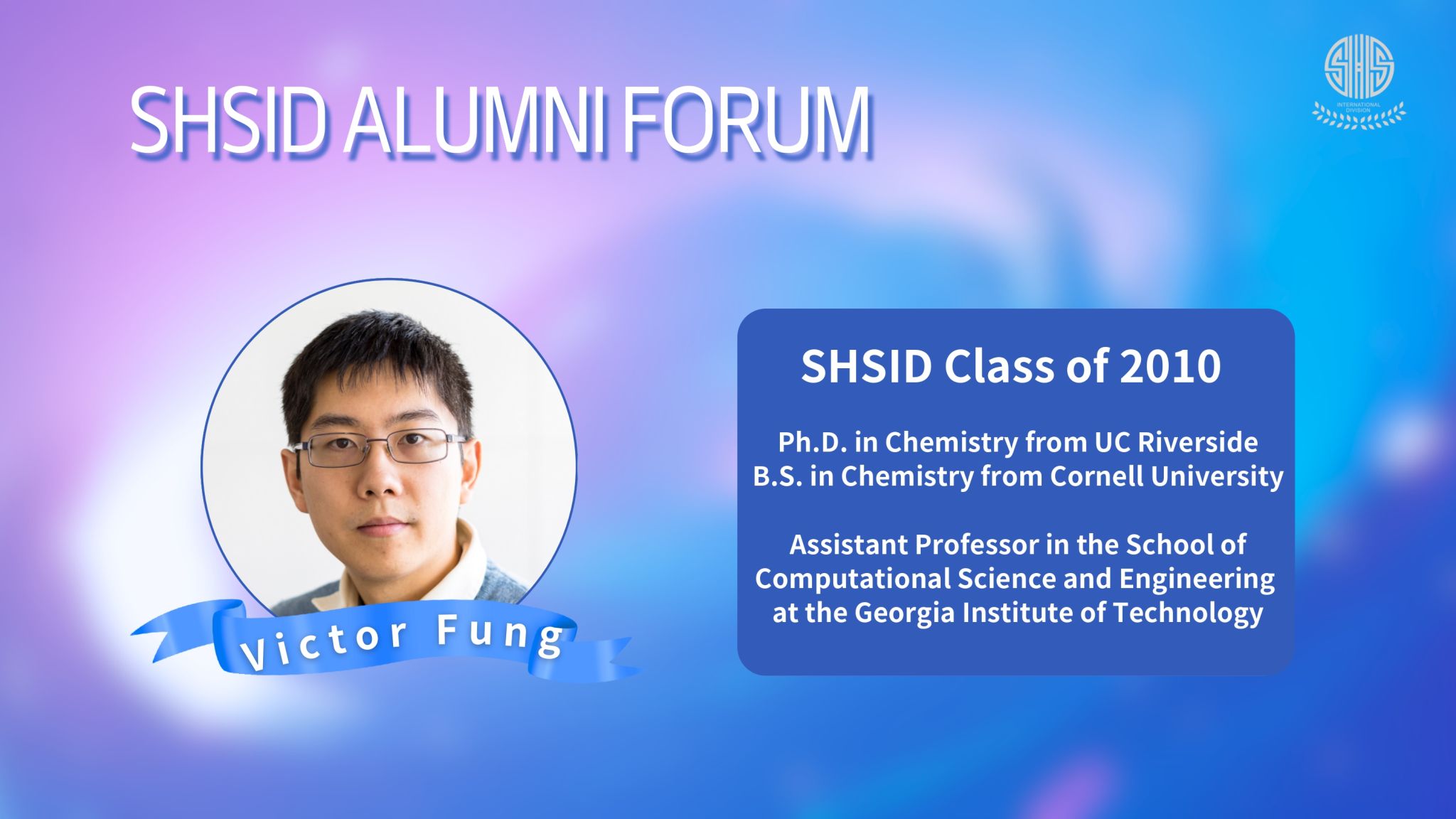
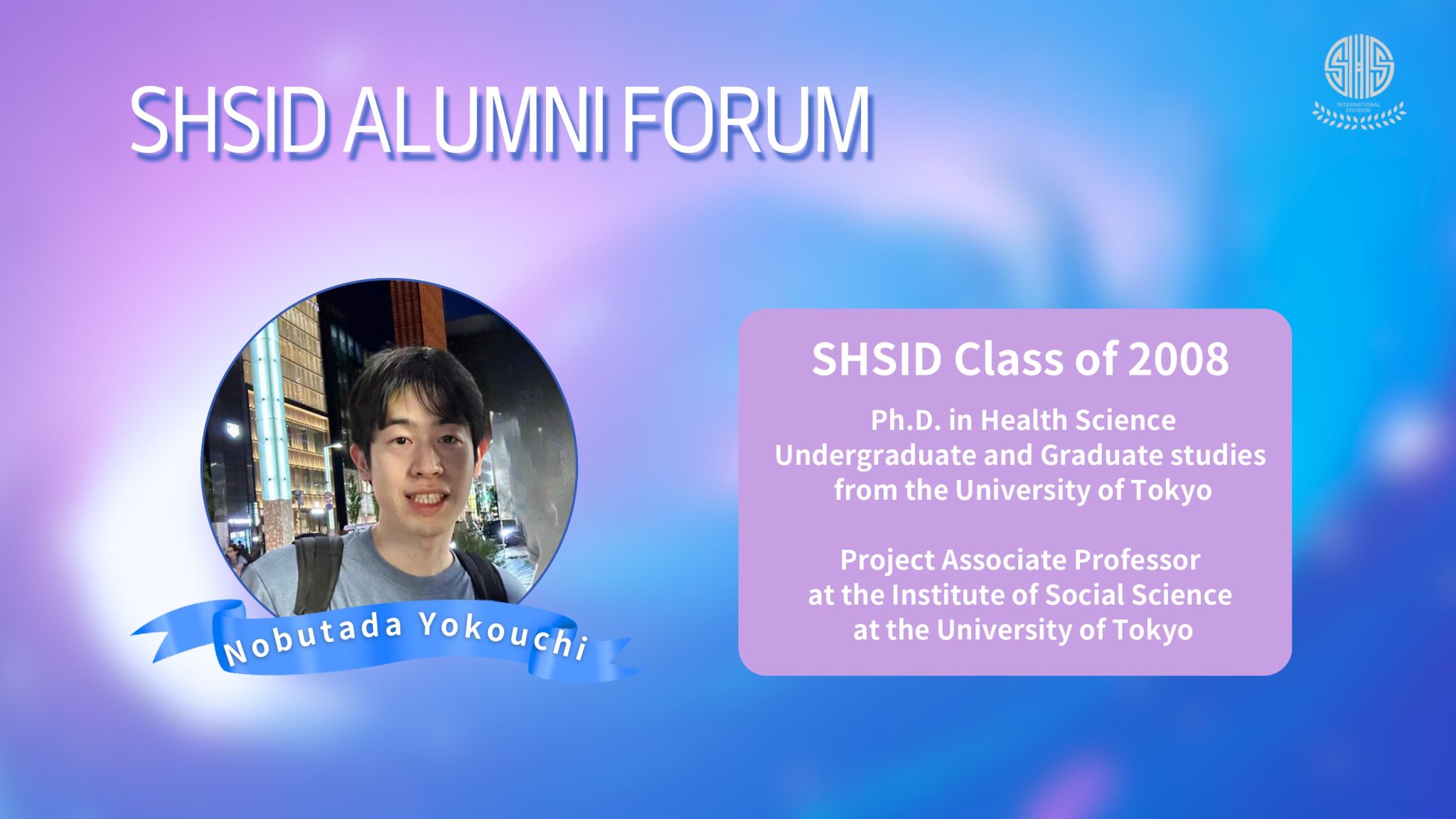
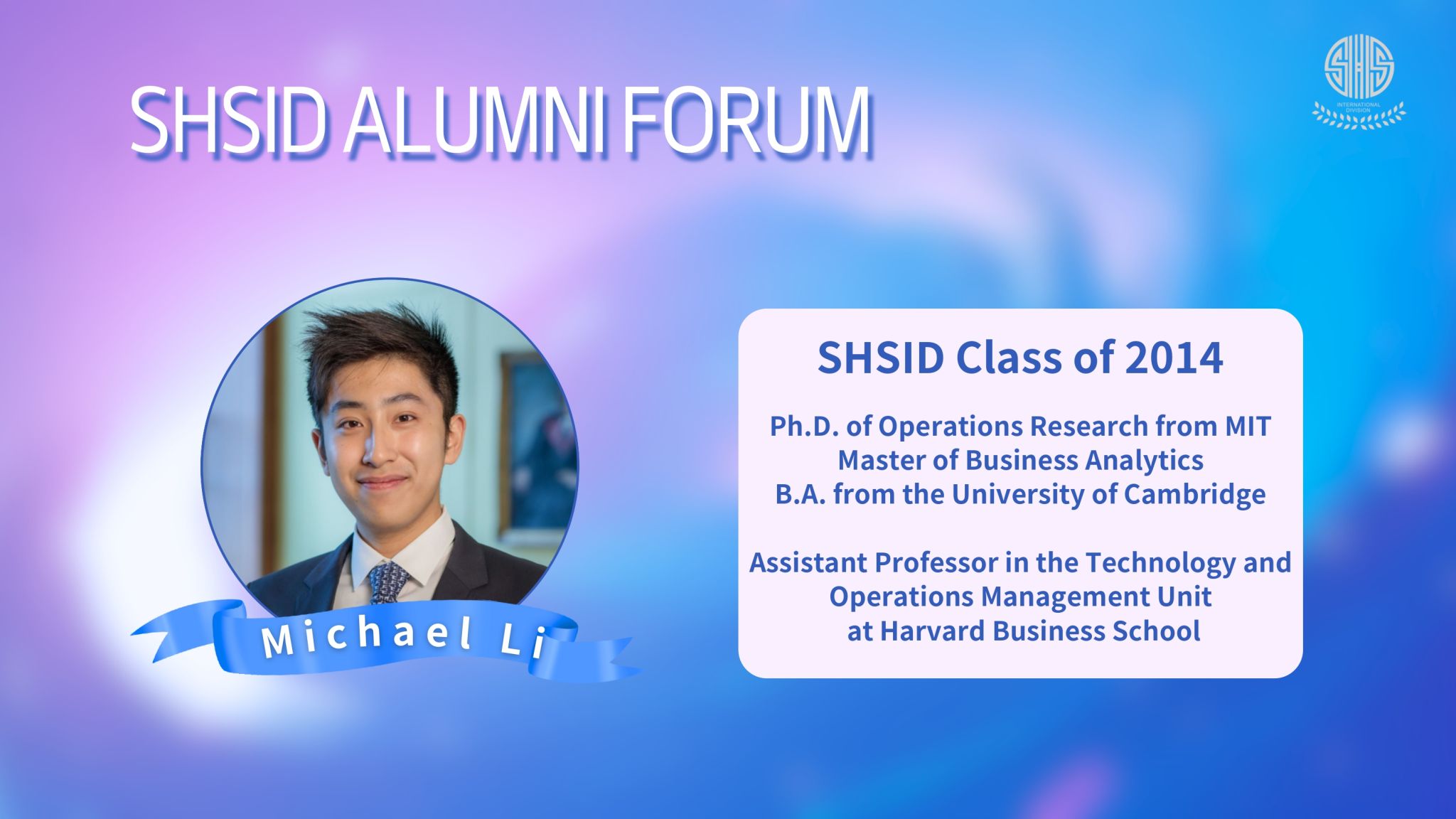
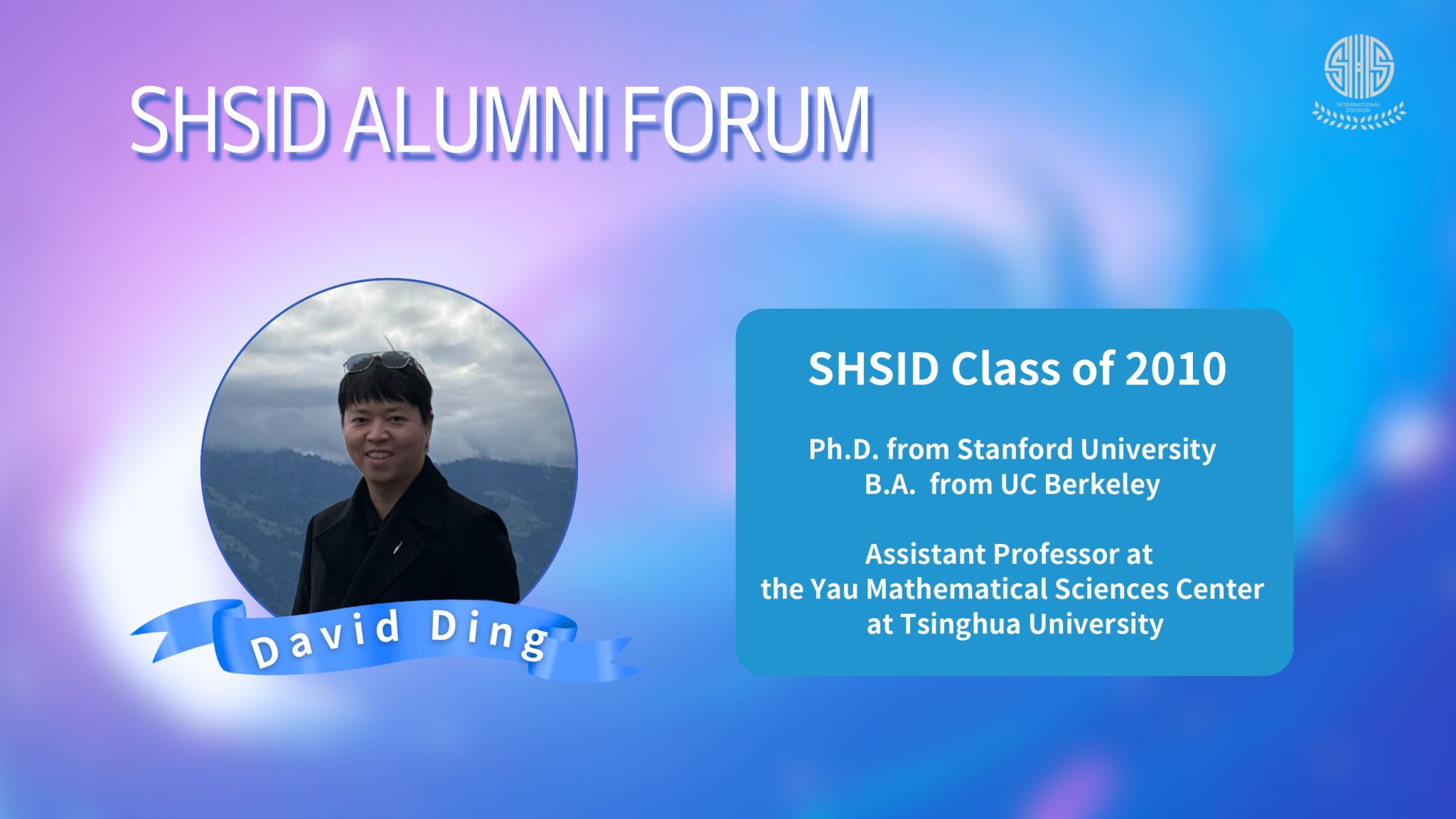
SHSID High School Principal Ma extended a warm welcome to alumni and students at the virtual gathering, expressing gratitude to the alumni for sharing their research and exploration journeys. He encouraged students to draw inspiration from the courage and innovation of their seniors, motivating them to push boundaries and pursue ambitious dreams. Principal Ma expressed confidence that the insights shared during the forum would spark inspiration among students and looked forward to the event’s success.
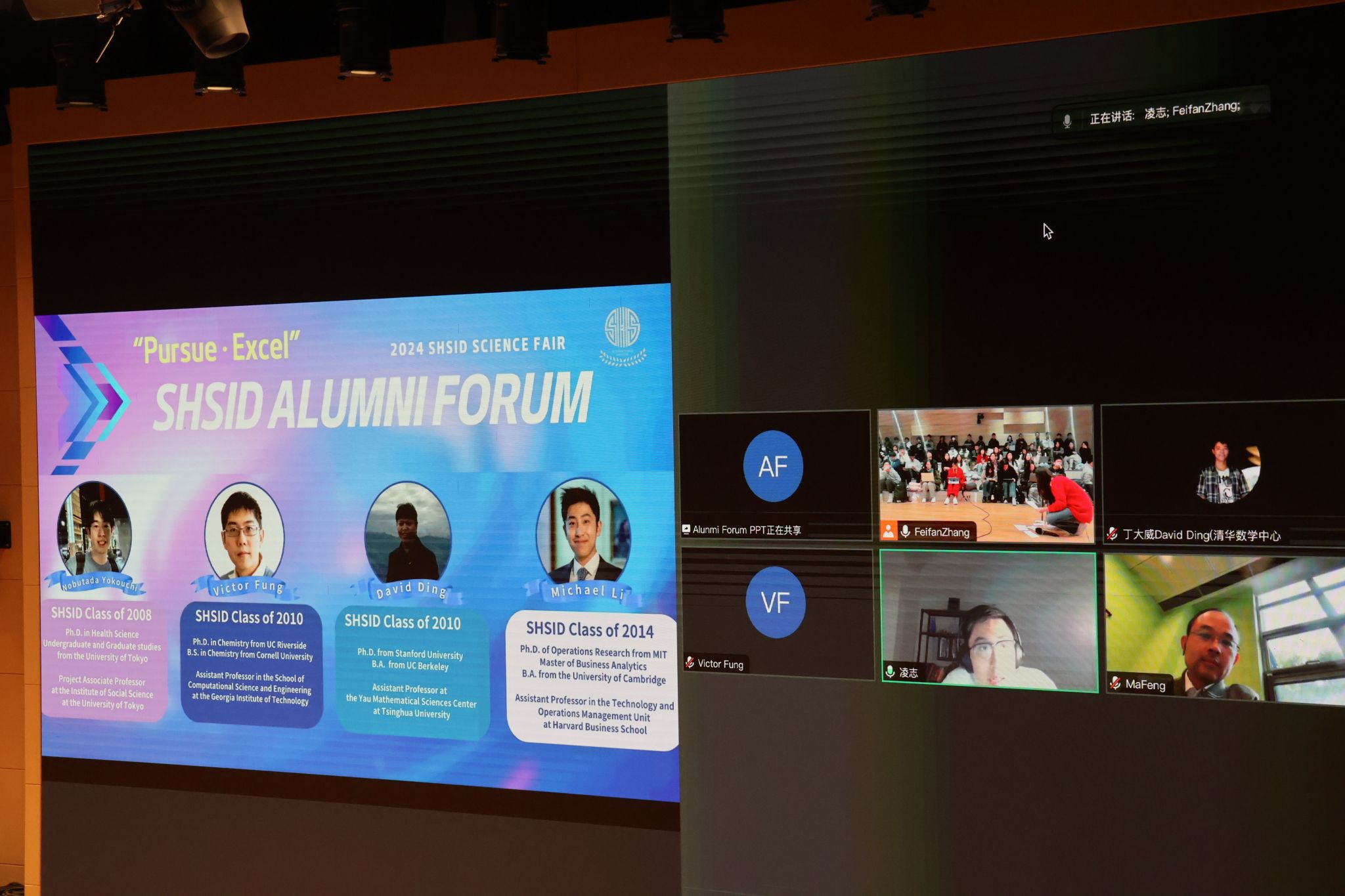
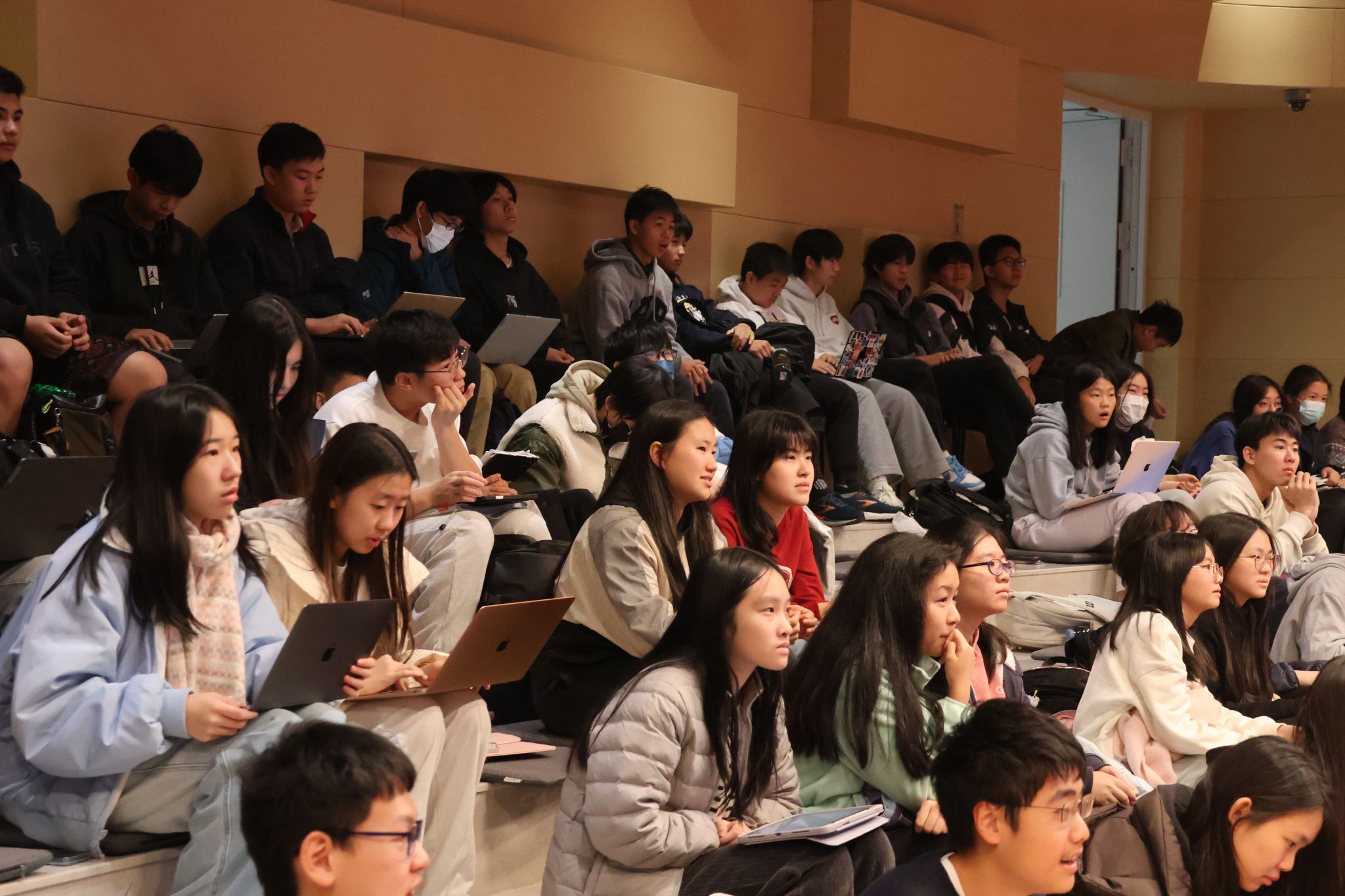
Dialogue Starts: Career Planning and Life Balance
In the forum’s opening discussion, four alumni professors shared valuable insights on career planning and maintaining a work-life balance, addressing concerns that are top of mind for high school students. While many students are filled with aspirations for the future, they often face uncertainty about how to turn their passions into practical career paths.
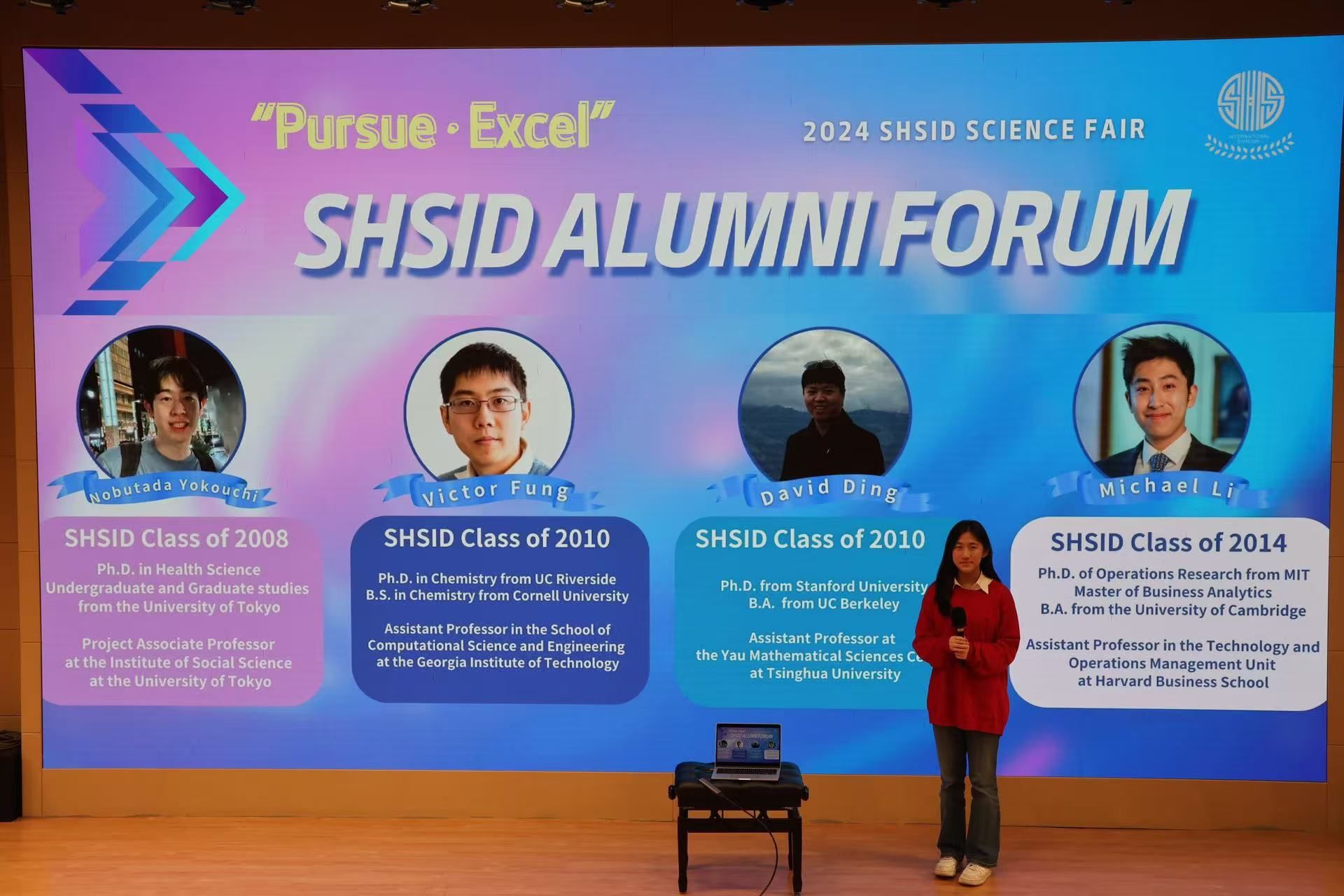
The host began by asking the alumni about the opportunities that shaped their career choices and the strategies they employed. Michael Li noted that career paths are often unpredictable and plans may change, but accumulating experience and continuously improving oneself are essential for future innovation. Victor Fung agreed, encouraging students to explore different fields and opportunities to find their true passions in research.
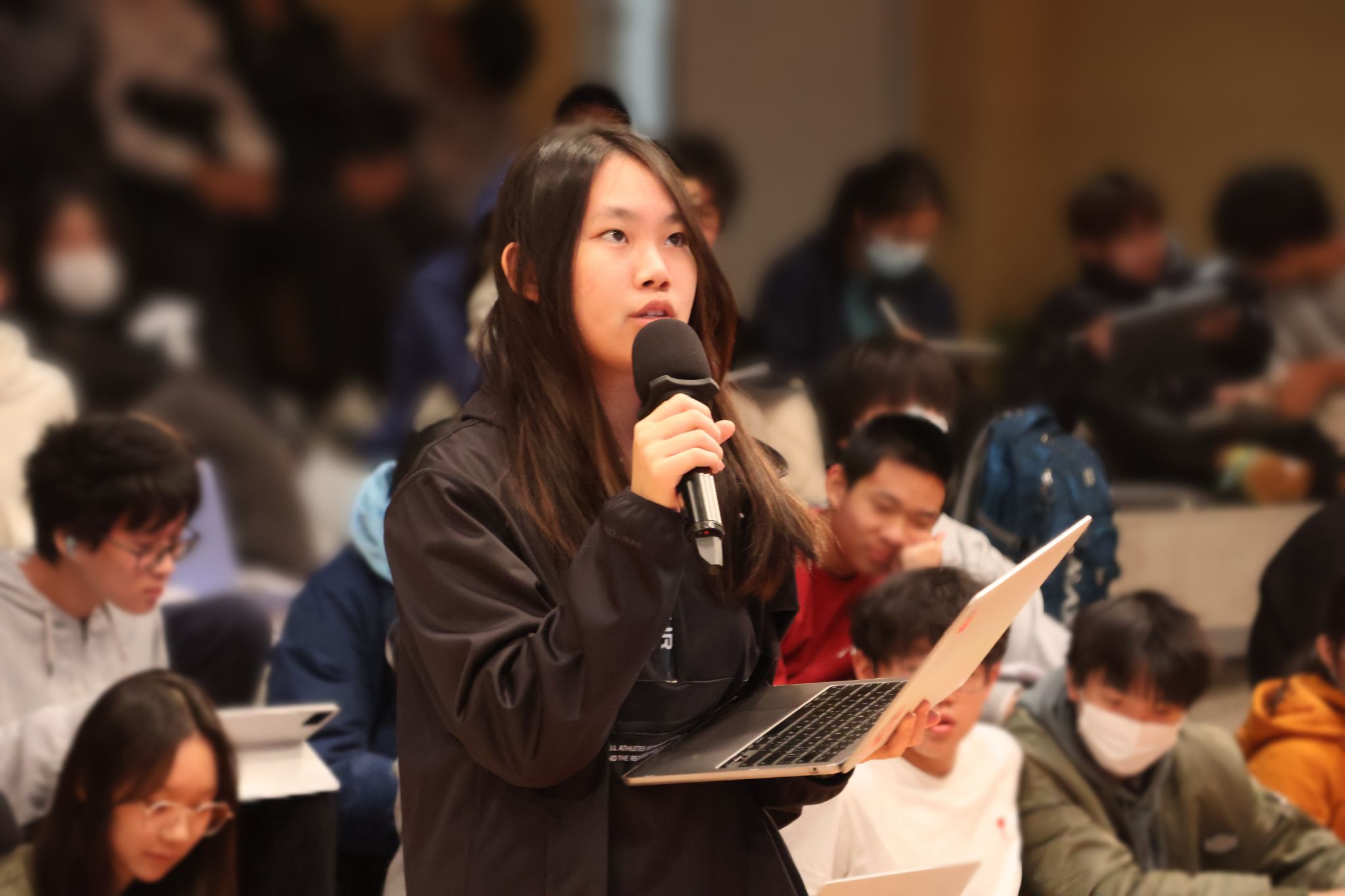
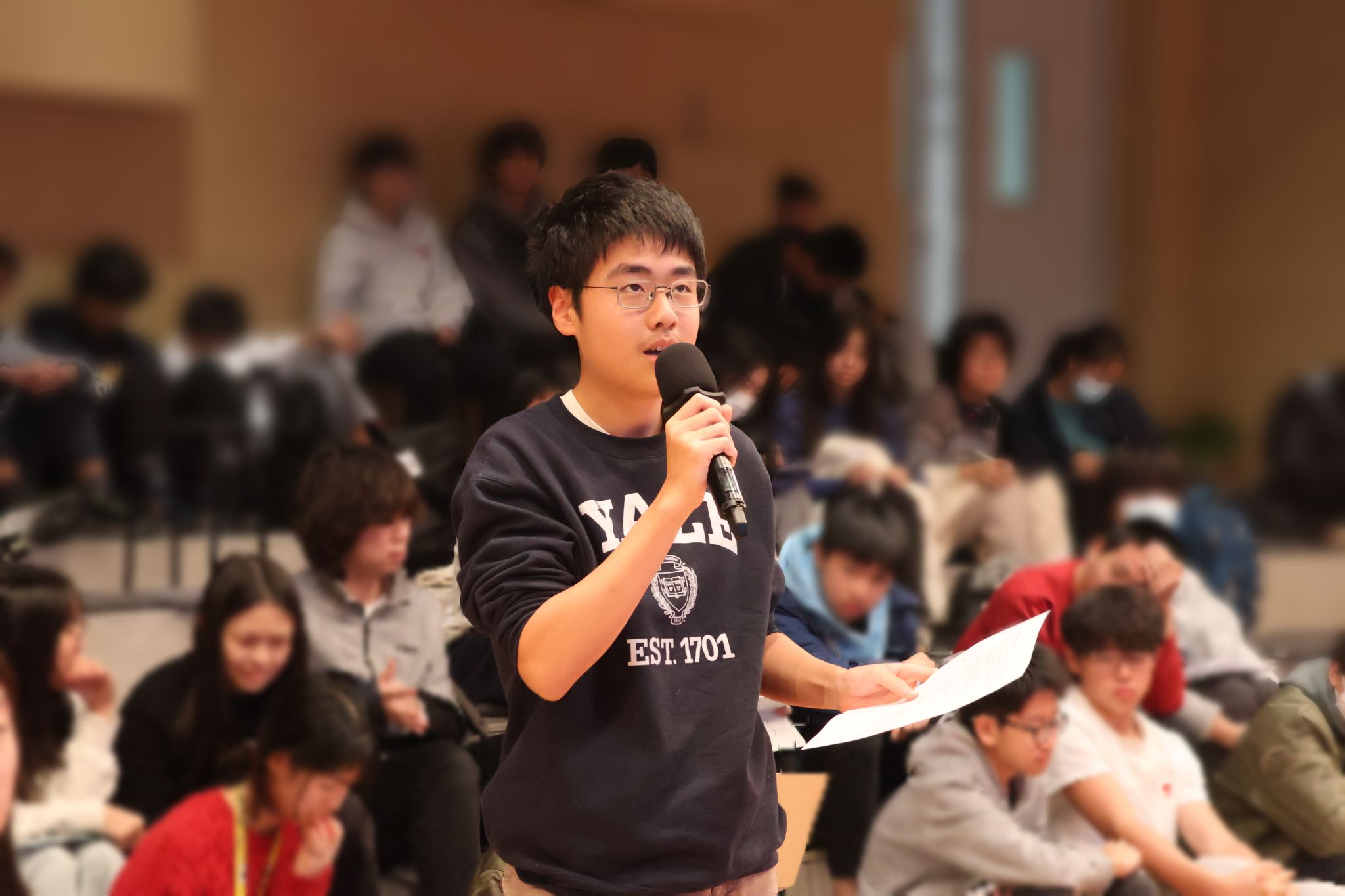
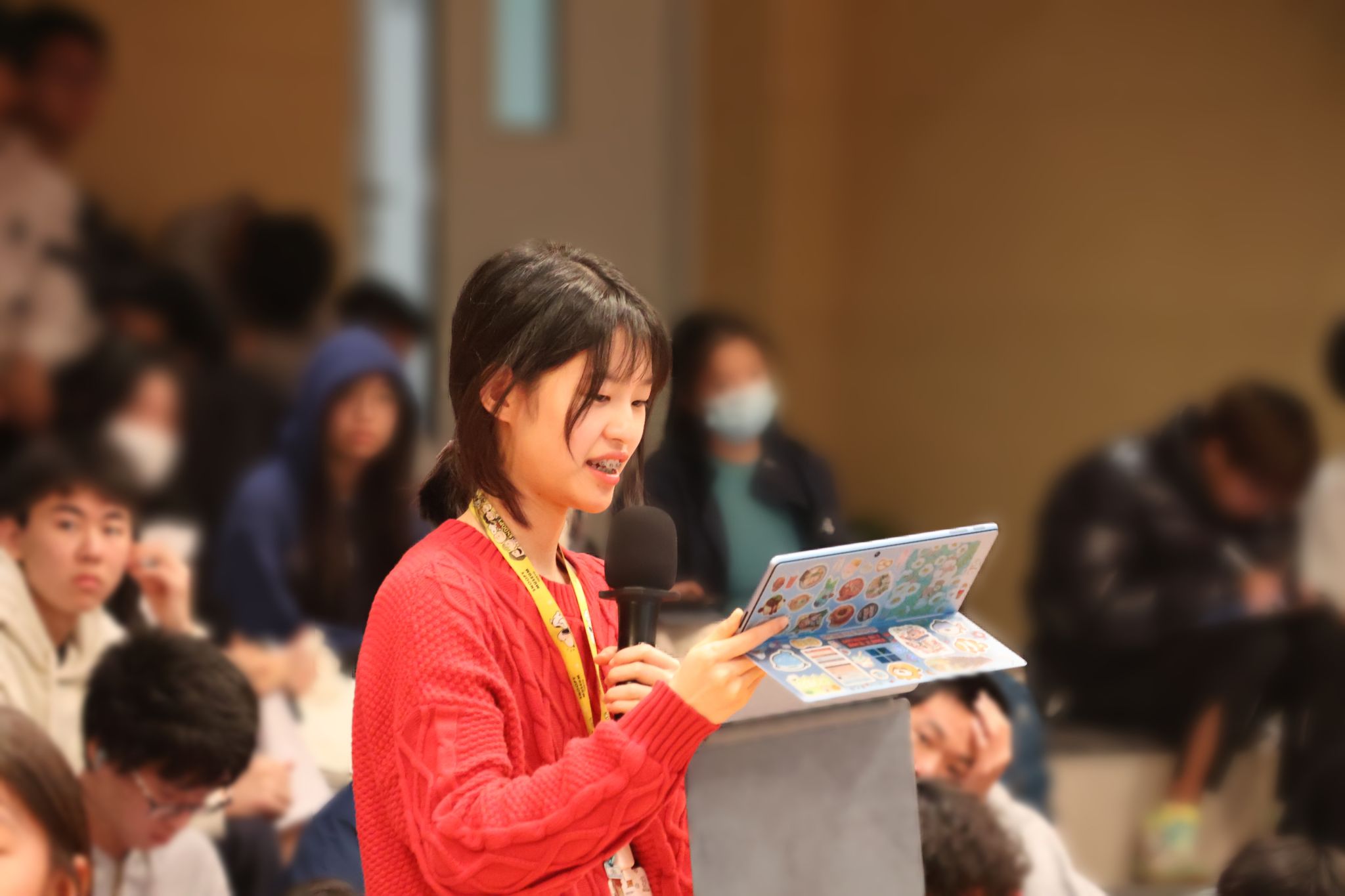
As the conversation turned to time management and balancing work with personal life, the alumni shared practical advice from their own experiences. Victor Fung admitted that achieving work-life balance is challenging, especially in academia, but emphasized the importance of making time for hobbies and personal interests. Michael Li, while expressing his love for teaching, shared that research consumes much of his time and advised students to also prioritize extracurricular activities. Nobutada Yokouchi reflected on how his growing responsibilities in his field led him to recognize the importance of maintaining physical and mental health. He encouraged students to focus on exercise, sleep, and rest, reminding them that life is a marathon, not a sprint, and maintaining balance is crucial for long-term success.
Forum Focus: From Interest to Expertise
Victor Fung
Victor Fung, a Ph.D. in chemistry and assistant professor at Georgia Tech, primarily focuses on computer science.
When asked about how his understanding of material modeling and machine learning evolved, he shared insights from his journey. Fung recalled enjoying the research process when he began his undergraduate academic career at Cornell University. During his Ph.D., he focused on studying chemical reactions and the interactions between compounds and elements. Later, while working at Oak Ridge National Laboratory, he had more independence in his research but faced challenges, especially due to the high costs and time demands of simulations. This led him to explore alternatives to expensive materials and introduced him to machine learning. He later deepened his study of machine learning and its applications in materials science, which ultimately steered him toward his current research focus—developing machine learning methods.
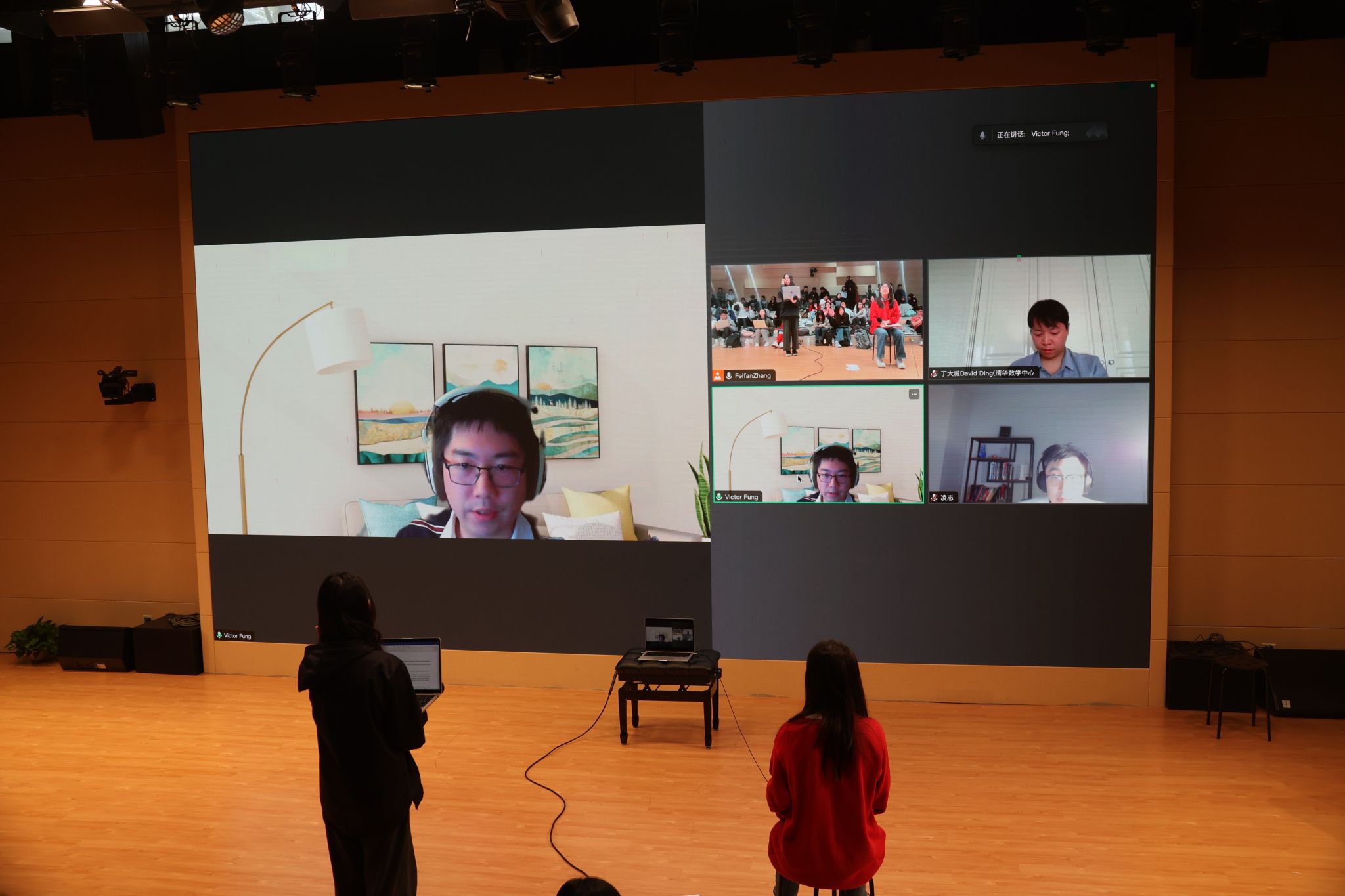
David Ding
David Ding, a Ph.D. in Physics and Mathematics, is an assistant professor at Tsinghua University’s Center for Mathematical Sciences. He specializes in quantum computing and quantum telepathy. Reflecting on his journey, Ding shared that his career choice was strongly influenced by his parents' backgrounds in science and engineering. Growing up in such an environment, he often visited libraries to read books on science, which fueled his interest in physics and scientific fields. He emphasized the importance of maintaining an optimistic attitude when pursuing one’s passions, stating that persistence in exploring a chosen field is key to finding the best development path.
As a researcher in quantum information science, Ding also discussed his daily work. He explained that his research focuses on theory and physical science, with a strong emphasis on analysis and computation. Much of his work involves deep thinking and discussions about theories and applications, often involving collaboration and problem-solving on the blackboard. Quantum information scientists also work to bridge the gap between hardware and theory, while fostering interdisciplinary connections. Although quantum information science is not yet widely applicable, Ding believes its practical use in society will be a critical direction for future development.
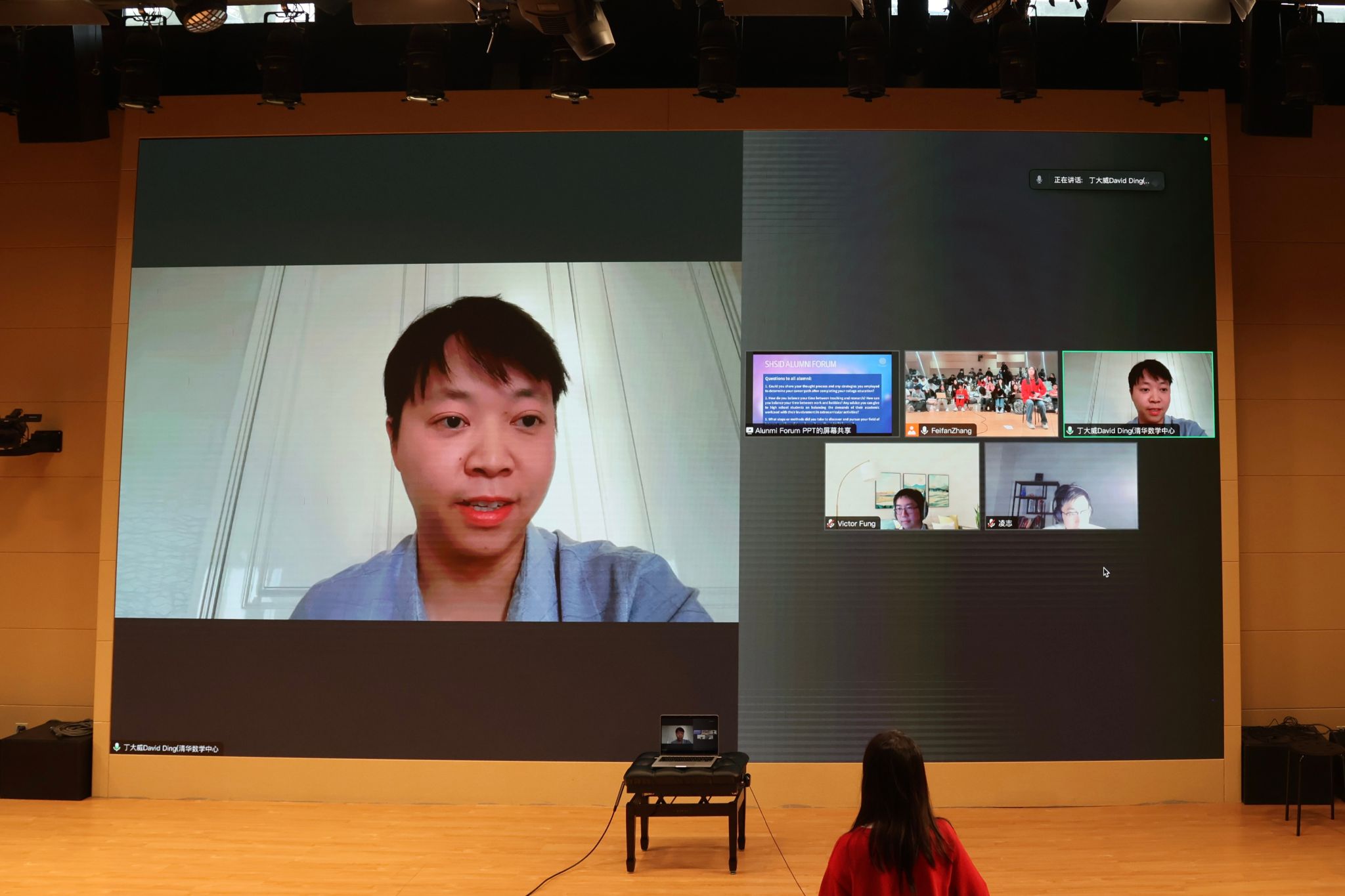
Michael Li
Assistant Professor at Harvard Business School and Ph.D. in Operations Research, Michael Li shared his work in the healthcare field, particularly his collaborations with major institutions like the FDA and CDC. He explained that these partnerships led to breakthroughs in algorithms, theories, and formulas, offering simplified solutions to certain problems. However, applying these innovations in real-world settings presented many challenges. Through collaboration, they were able to overcome some of these obstacles. The gap between theoretical solutions and practical applications pushed them to better understand the needs of stakeholders. While some problems were addressed using mathematical methods, full implementation remained challenging. These collaborations provided valuable interactions with end-users, helping them better understand and meet the specific needs of the healthcare field.
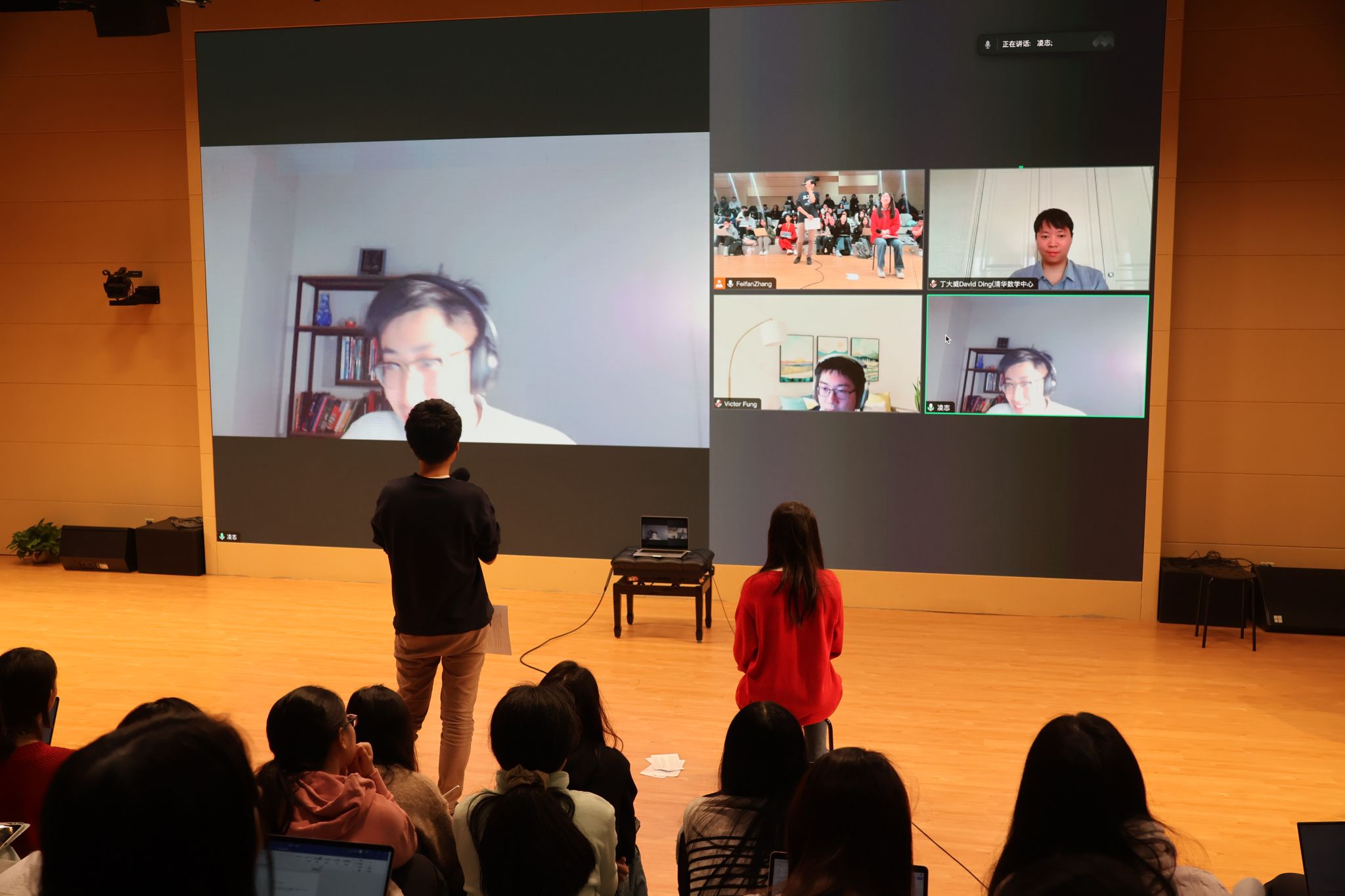
Nobutada Yokouchi
An assistant professor at the University of Tokyo, Nobutada Yokouchi highlighted the significant role statistics plays in his research and expertise. When asked about the application of statistical tools in his social psychology research, he explained that his work involves complex analyses focusing on the causal relationship between two events. He uses statistical methods to control biases, aiming to get as close as possible to an ideal scenario. Yokouchi also offered valuable advice to young researchers, particularly those looking to contribute to interdisciplinary fields in health science. He encouraged them to explore knowledge across different disciplines and not dismiss their interests too early, as boundaries between fields are becoming increasingly blurred. In health science, for example, knowledge from biology, psychology, sociology, demographics, statistics, and even artificial intelligence is crucial.
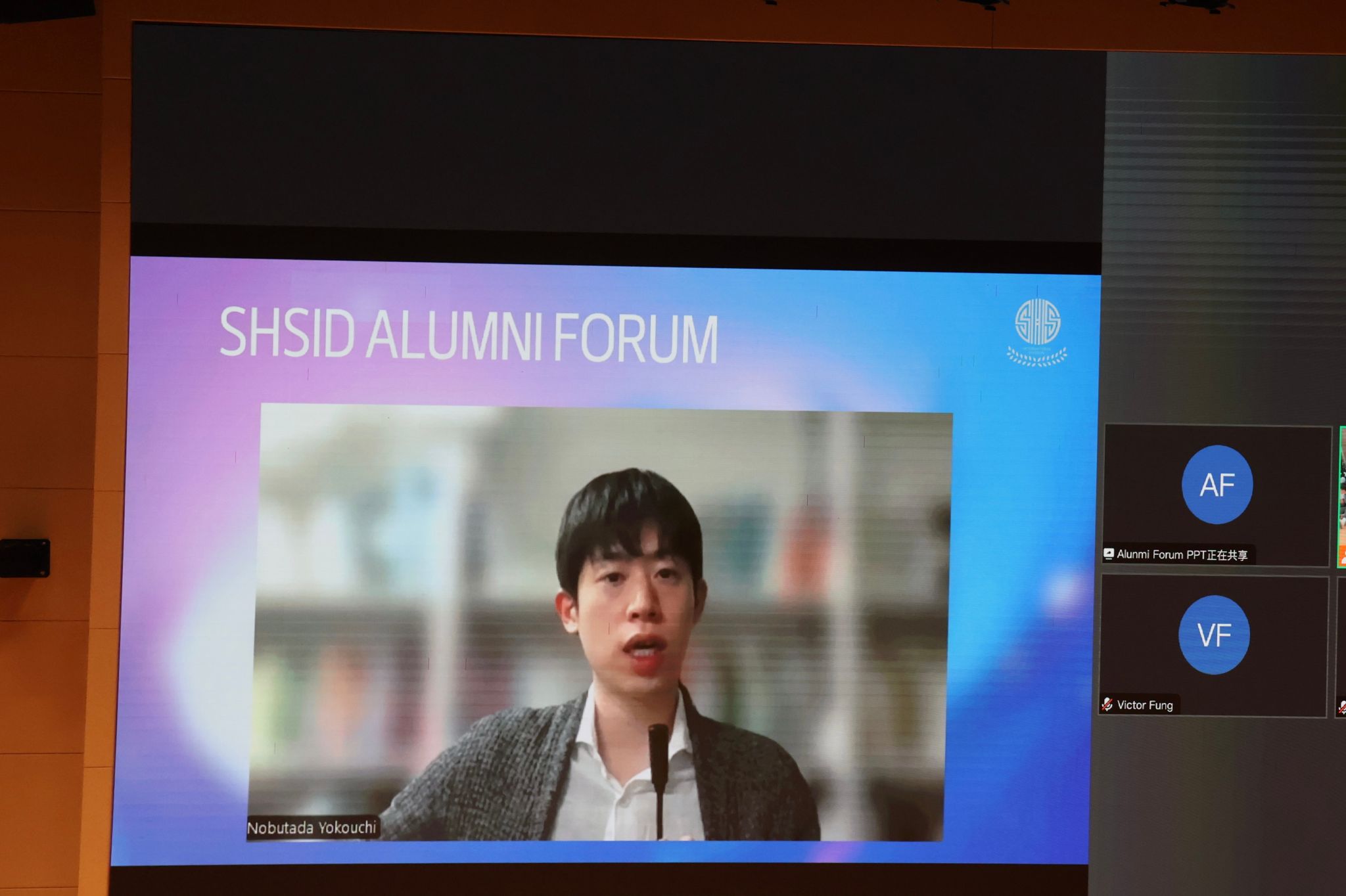
Q&A Session: Sharing Personalized Advice
During Q&A session, they also answered a lot more questions from the students.
Q1: Your work has been applied in the FDA, CDC, and many important healthcare organizations around the world. Can you talk about how these collaborations started?
Michael Li: How to carry out social cooperation generally lies in understanding the problems one aims to solve and then attempting to address these problems through technological advancements. However, the application of technology often encounters obstacles, which necessitate active communication and cooperation. The joy of collaboration lies in overcoming these difficulties. Throughout the entire process, it is crucial to gain insights into what people truly care about and how we should alter algorithms to better solve the problems.
Q2: Can you explain how AI can help in predicting the properties of new materials before they are even synthesized?
Victor Fung: After developing materials, we attempt to identify certain material properties relevant to our research field. We predict whether a material is a good semiconductor and expand our research to explore various aspects of its properties. This requires a significant amount of time in this domain. Nowadays, machine learning is more data-driven, which saves research time to a certain extent.
Q3: Could you discuss any challenges you have faced while researching and experimenting in the new field of quantum information science?
David Ding: In our field, commercialization is still quite distant, so much of the research work is conducted based on trends. What I'm trying to achieve is to combine theory with experimentation and apply it to make technology truly operable, solving some practical problems. This requires us to maintain patience and perseverance, and continuously explore and innovate.
The one-hour Science Forum flew by in an instant, as four distinguished alumni shared their exceptional achievements, which not only highlighted their excellence but also aligned perfectly with SHSID’s core academic values of "pursuit" and "excellence." The alumni’s journeys, like beacons, illuminated the paths ahead for current students, inspiring them to dream big, aim higher, and push forward toward new academic heights. Their stories encouraged students to boldly explore, relentlessly pursue excellence, and work together to reach new peaks. The 2024 Science Fair activities are still ongoing—stay tuned for more!
(Written by Amanda 10(12),Bella 10(11),Alison 10(8),Audrey 10(3),Elena 10(4),Michael 10(10),Hanna 10(3),Grace 10(11),Max 10(5) Photos by SHSID Media Group Supervised by Ms. Sun Liming, Ms. Chen Lin Reviewed by Ms. Gu Ying, Ms. Shen Chenli Edited by Ms. Shi Hanyue)